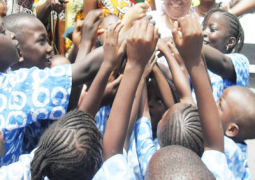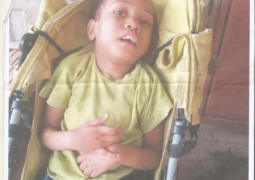The West Africa Network for the Protection of Children is organising a five-day regional meeting for its national coordinators in
The meeting, being held from 6 to10 June 2011, is organised in partnership with a local NGO -Child and Environmental Development Association (CEDAG) - and the Ministry of Health and Social Welfare.
The organizers on Sunday held a press briefing about the
Speaking to journalists, Olivier Geissler, Head of International Programmes at the Swiss Foundation of the International Social Services, said that in 2005, the Swiss Foundation launched an initiative in
He said the vision of the initiative is to establish cooperation between the 15 ECOWAS countries on the basis of harmonised procedures and standard and on common methodology of intervention.
"The initiative seeks to reunite children with their families and provide them with little support," he said.
No single NGO or government can address the problem, thus the need for the active participation of all key actors, he said, adding that they have 10 counties on board with coordinators meeting in Banjul and are hoping that by 2012 all the ECOWAS countries will be covered.
The children on the move, he said, are exposed to a lot of dangers such as sexual exploitation, prostitution, child labour, and trafficking. Their protection, he added, requires collective efforts by all stakeholders.
The objective of the network is to capacitise West African countries to better assist nationally and trans-nationally vulnerable children and youngsters on the move to ensure their social, education and vocational reintegration, Mr Geissler says.
Morris I.O. Anyim, the network coordinator in The Gambia, said they are working towards addressing vulnerable children at boarder crossing points and across countries.
"We support the families of these vulnerable children and their communities to encourage the children to stay," Mr Anyim said.
The Community Service for Children consultant noted that children move for obvious reasons such as in search of knowledge (e.g. Almudos), poverty, family problems among others.
He said that when they come across these kinds of children they ensure they take care of their health before integrating them to the society.
He hailed the technical support they have been receiving from the Department of Social Welfare through the existing structures on the ground.
Mr Morris used the opportunity to remind state authorities of their obligation to protect children from danger, abuse and exploitation.




